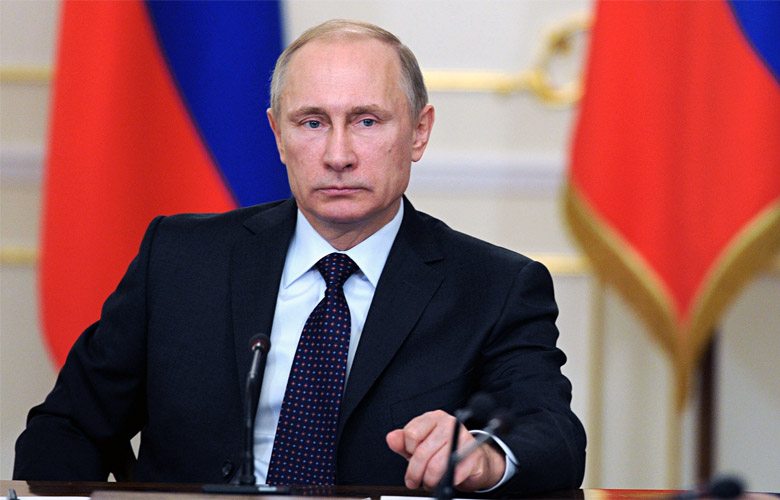Alwaght- The Russian Minister of Defence Sergey Shoygu as well as the Russian Foreign Minister Sergey Lavrov have said, on March 14, 2016, that the Russian anti-terror military operations in Syria have been successful and the way was paved for peace negotiations following the Russian military campaign in the country. Following these remarks, the Russian President Vladimir Putin has announced that the Russian mission had ended in Syria, and that the Russian forces in Syria were planned to exit from Syria on March 15.
In a time that the Syrian peace talks started in Geneva and the Syrian President Bashar al-Assad was overjoyed at the gains made in the battlefield with the help of the Russian airstrikes against the terrorists, Moscow has declared that it would pull its forces out of Syria. The Russian announcement of quitting Syria was as surprising and unexpected as its intervention in the war-torn country.
The Kremlin has justified its military intervention in Syria by saying that it intended to help the legitimate government of Damascus to battle the internationally-supported terrorism. The terror organization ISIS has been successful in recruiting forces from the majorly Muslim-inhabited regions of Russia and the republics of the former Soviet Union, giving Russia’s Putin a doubled motivation for fighting against terrorism and trying to prevent the terrorist fighters from returning home and posing dangers to Russia. The Russian minster of defense has tried to prove that his country’s intervention in Syria was successful by enumerating a couple of successes which included recapturing of nearly 400 residential areas from the ISIS’ hold, giving the Syrian government assistance to cut off logistic supply lines of the terror groups and killing about 2,000 ISIS’ fighters from Russian decedents.
Beside the declared Russian goals, Putin’s intentions for Moscow’s going to the Syrian war are of considerable significance. In the time that Russia was carrying out airstrikes in Syria, the US and its allies have alleged that Moscow was majorly hitting the positions of the Syrian opposition groups and not solely the whereabouts of ISIS group. It is not clear how many civilians have died as a result of Russian air raids. These airstrikes have blocked advances of the Syrian opposition forces on the ground fronts, making them disillusioned with success. Under the duress of the air campaign of Russia, the Syrian opposition went to negotiating table with the Syrian government. Therefore, saving the government of the Syrian President Bashar al-Assad was Putin’s first unannounced goal behind military campaign in Syria.
The second objective of Mr. Putin was showing off the restored Russian military strength. According to a Russian military commander, who was quoted by the Russian daily Kommersant, one of the overarching objectives behind Russia’s stepping in the Syrian war was testing its novel weapons in a genuine battlefield.
On Monday, President Putin has declared the Russian forces as deserving the highest praise for fighting beyond the Russian borders and in a place which shared no borders with Russia. Putin’s message has made it clear that after a decade of decline, the Russian army has risen afresh, ready to actualize Moscow's goals anywhere and anytime.
But the most significant objective behind Russia’s speedy intervention in Syria’s battle was to restore the Russian prestige in the global scene. Following annexation of the Crimea Peninsula by Moscow, the Western countries have worked to isolate Russia, driving Russia out of international circles. Turning into a key player in the Syrian war was a smart but hazardous means for Russia to make its way out of the Western isolation.
This strategy has yielded the intended results for Moscow. In September 2015, when Russia has deployed military forces to Russia and commenced its operations there, the US Secretary of Defense Ashton Carter phoned his Russian counterpart. At the same time, Sergey Lavrov has started discussions with the US Secretary of State John Kerry to work out a diplomatic settlement to put an end to the devastating war in Syria.
The Syrian war even brought forth a Putin-Obama interaction. In September 2015, on the sidelines of UN General Assembly in New York, the two presidents met. After announcement of withdrawal of Russian forces from Syria on March 14, President Putin has talked to the American President Barack Obama over the phone.
Nevertheless, the Russian intervention was not without setbacks. Moscow has lost Ankara as its partner after the Turkish fighter jets shot down the Russian SU-24 near the Turkish borders in Syria. Moscow also ran the risk of possibility of radicalization of Sunni Muslims inhabiting Russia’s southern regions, who are critical of Russia’s backing of Syria’s Assad.
Many in the US, including President Obama personally, had predicted that Russia would get stuck in Syria’s quagmire. Learning from the Soviet Union’s experiences in Afghanistan and from Washington’s troubles in Iraq, the Kremlin has seized the first opportunity to get away from the abyss of Syria.
Putin has always kept secret his pathways and strategies, making it impossible to predict Russia’s next steps. The Russian President has done the same job in Ukraine. Some experts suggest that the aim of the Russian forces’ withdrawal from Syria could be that Moscow wanted to put more strains on the Ukrainian front. Still, some others have talked about the likelihood of taking on ISIS in Afghanistan and Libya.
Putin’s claim of “end of mission” of Russian forces in Syria should not be interpreted verbally. In first step, some 60 helicopters and fighter jets of the Russian armed forces would leave Syria. However, “the Russian equipment in Tartus sea base as well as Hmeymim air base in Lattakia would continue operating, and supervising the truce in Syria,” said the Kremlin’s Spokesman Dmitry Peskov. This would mean that the Russian missile defense systems S400, which were deployed after downing the Russian bomber by Turkey, would continue their operations in Syria.
Therefore, Putin would not leave Syria. In Syria, like in Ukraine, Putin would keep all of the options on the table.



























